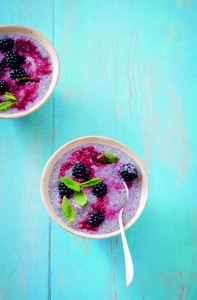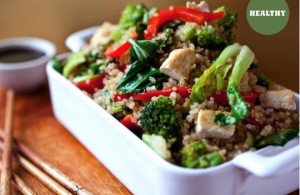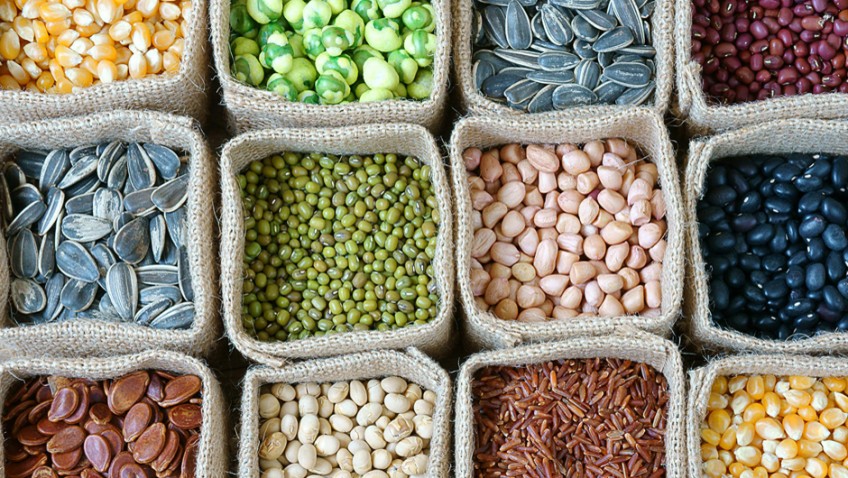September celebrates World Heart Day, which acts as a reminder of the extent of heart disease and the positive changes that we can make to the way we eat and live our daily lives that will help to keep our hearts healthy.
Cardiovascular disease
Cardiovascular disease (CVD) is the term used to describe a group of conditions that can affect the heart such as high blood pressure, heart attack and stroke. It is still the lead cause of premature death in the UK and affects 1/3 of men and 1/5 of women. Coronary heart disease (CHD) and stroke are the most common heart conditions in the UK. There are currently around 2.7 million people living with CHD and around 1.2 million who have suffered a stroke, which makes this a serious public health issue.
Risk factors for cardiovascular disease
There are a number of factors that can increase your risk of developing CVD. Smoking and being overweight or obese are the top causes and can be tackled with the right support and will power.
Risk factors include:
- Smoking
- High blood pressure
- High blood pressure
- Physical inactivity
- Being overweight or obese
- Having diabetes
- Family history of CHD or stroke
- Your sex (men more likely to develop CHD earlier than women
- Ethnicity
The ultimate heart health diet
There has been a lot of research that has investigated the best way to eat to protect the heart, especially surrounding the Mediterranean diet. Most of the findings are common sense and follow the same basic principles of mainly plant-based foods that include plenty of antioxidant-rich fruit and vegetables and fibre-rich wholegrains as well as healthy fats (mono-unsaturated and omega 3), lean proteins and limited processed foods that are often high in saturated fat, salt and sugar (components of the diet that are closely linked to heart disease risk when eaten excessively).
Many of these foods have also been found to help reduce inflammation in the body, which appears to underpin many diet related diseases, especially in those who are overweight or obese.
 Heart healthy foods
Heart healthy foods
Salmon (omega 3 fatty acids)
Red kidney beans (high fibre linked to weight loss and reducing cholesterol)
Soya beans (soy isoflavones linked to lowering cholesterol)
Leafy green vegetables (nutrient rich)
Oats (beta-glucans shown to reduce cholesterol)
Plant sterols (help to reduce cholesterol)
Olive oil (rmonounsaturated fats help to reduce inflammation and cholesterol)
Avocados (monounsaturated fats and potassium help to maintain fluid balance and blood pressure)
Berries (rich in antioxidants including that help reduce inflammation)
Supplements
Whilst foods should always come first, supplements can be a useful way to bridge the nutrition gap. If you do not include oily fish in your diet then you may benefit from taking a supplement that provides a good source of the omega 3 fatty acids, EPA and DHA such as Healthspan Super Strength Omega 3. Other supplements with a functional benefit include plant sterols to help reduce cholesterol levels and CoQ10 (Healthspan Co-enzyme Co.Q10 60mg / 100mg /200mg) that may help to reduce the side effects experienced by many people who take statins.
Greens and tofu stir-fry
Serves 2
530 calories per serving
Rich in potassium, calcium, magnesium, iron, vitamin E, B vitamins, soy isoflavones and fibre
Ingredients
100g quinoa
2 tsp extra virgin coconut oil
1 small red onion, finely sliced
2 cloves garlic, finely sliced
1 chilli, finely chopped
1 inch piece of ginger, cut into batons
1 courgette, cut into batons
100g tenderstem broccoli
100g kale, finely shredded
50g edamame
20g cashew nuts, toasted and lightly chopped
200g marinated tofu (such as Cauldron Foods)
1 tbsp light soy sauce (reduced sodium)
Handful of coriander, chopped
- Place the quinoa in a medium-sized saucepan of cold water ad bring to the boil. Cook for a further 5 minutes or until the seeds start to sprout and are tender. Drain with a sieve and set aside.
- Heat the oil in a wok and add the onion, garlic and ginger. Cook for 2 minutes then add the chilli and remaining vegetables and cook for a further 3 minutes.
- Add the cashew nuts and tofu to the wok then cook for another 4 minutes then take off the heat.
- Stir through the soy sauce and coriander just before serving.
- Serve in small bowls with the quinoa.
Rob Hobson is the author of The Detox Kitchen Bible published in May this year and available on Amazon published by Bloomsbury plus he is Healthspan Head of Nutrition and Registered Nutritionist. Visit www.robhobson.co.uk for recipes.





